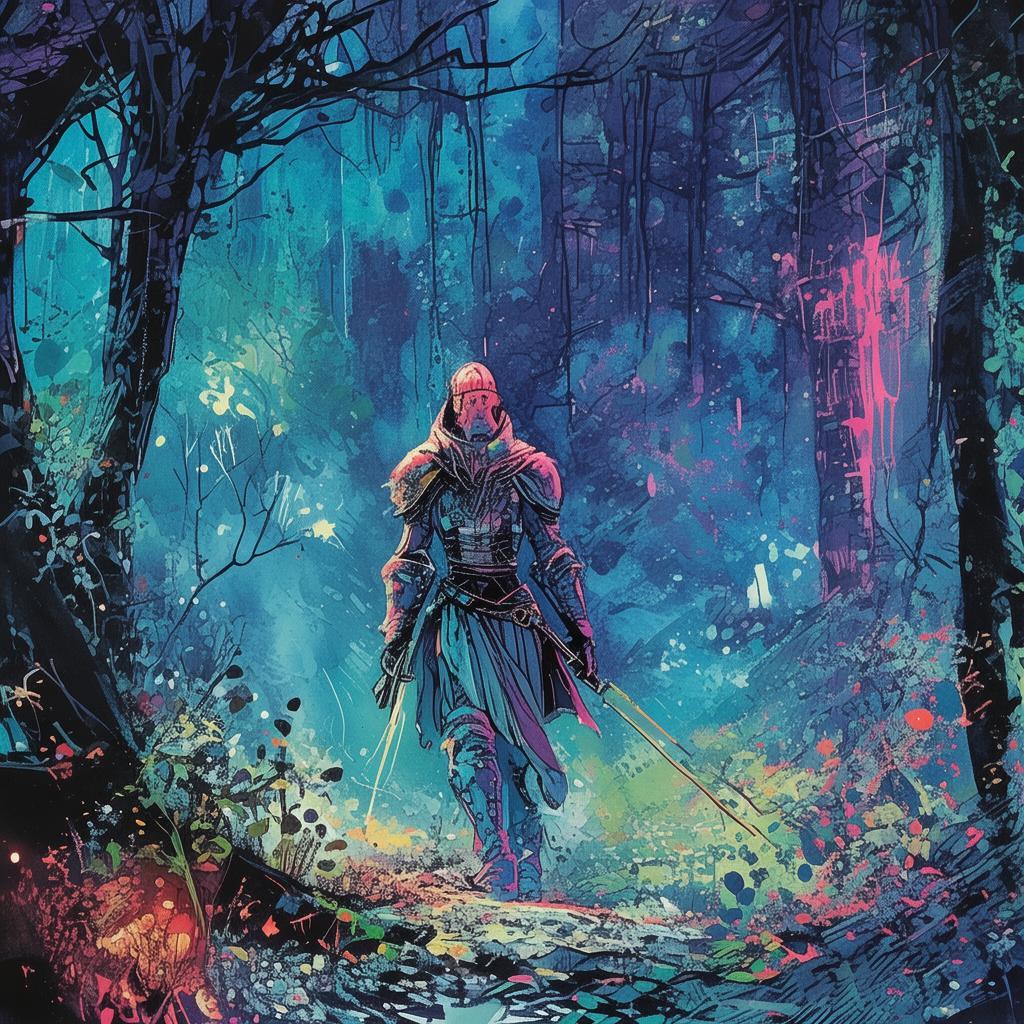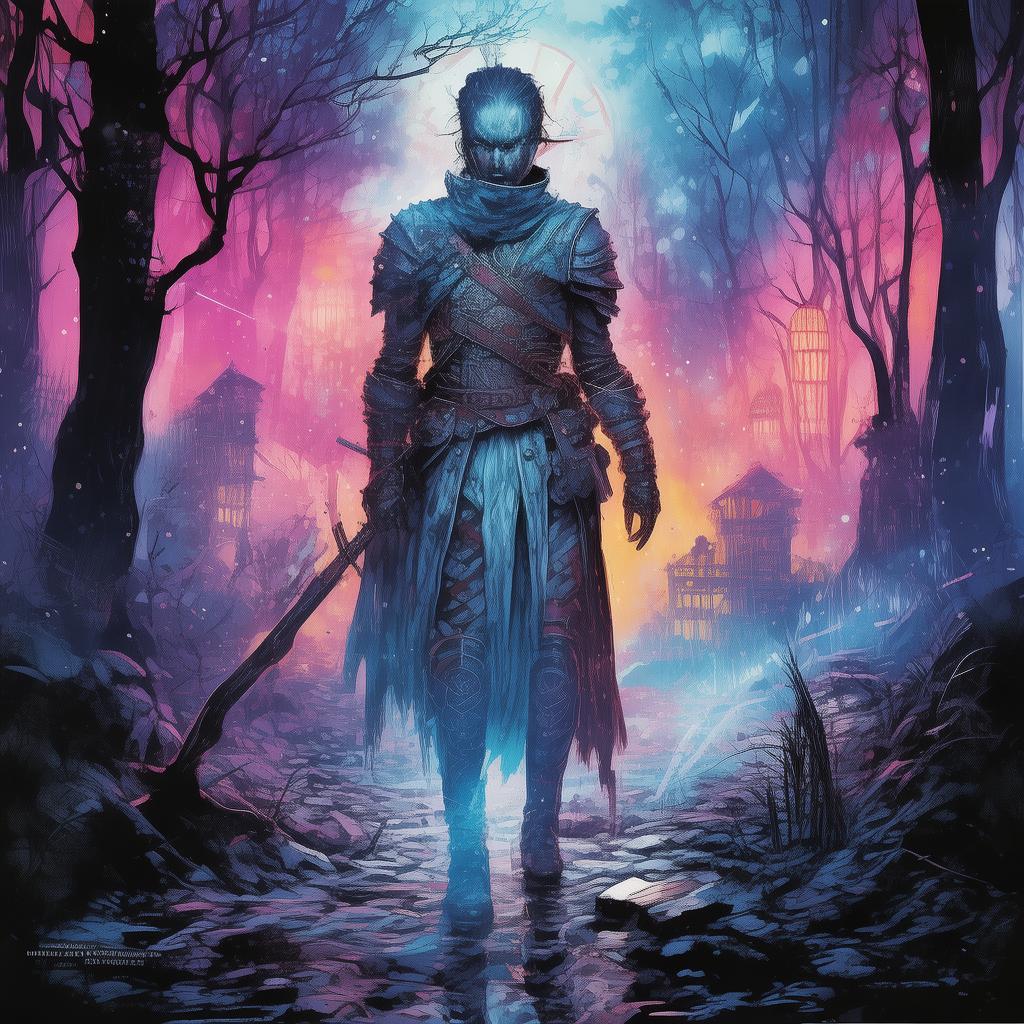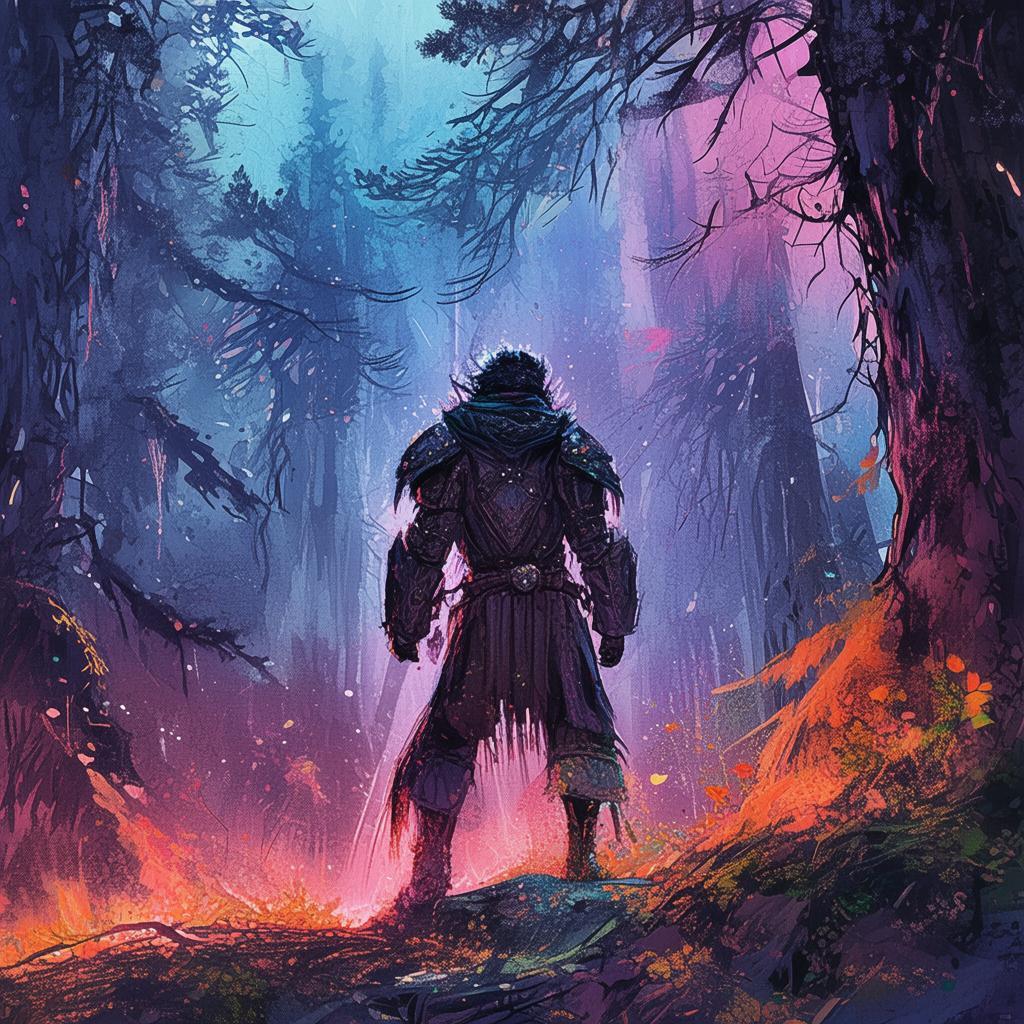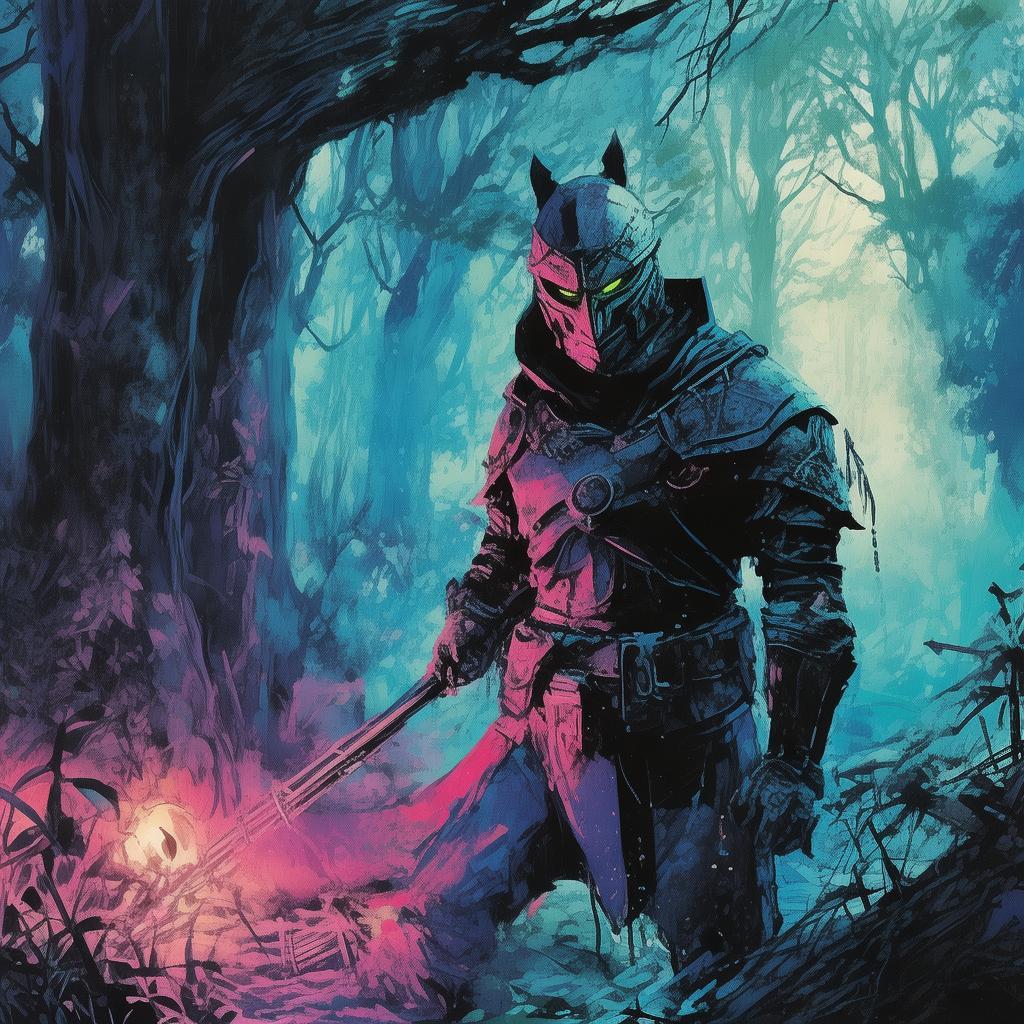The Bamboo Sheets of the Vanishing Poet
In the heart of the Wuyue region, where the Yangtze River meanders through lush green valleys, there lived a man whose name was whispered in reverence and sorrow alike. Qu Yuan, a poet of unparalleled talent, was known for his verses that painted the beauty of nature and the depth of human emotion. Yet, his life was shrouded in mystery, and his death, a tragic one, has become the stuff of legend.
The story begins in the year 278 BC, during the Warring States period. Qu Yuan was a loyal minister to the King of Chu, a kingdom that was on the brink of collapse. His poetry was a beacon of hope for the people, but his political views were a thorn in the side of the corrupt nobility. As the kingdom's enemies closed in, Qu Yuan's life took a dark turn.
One evening, as the moon hung low in the sky, casting a silver glow over the river, Qu Yuan sat by his window, his fingers tracing the intricate patterns of bamboo sheets that lined his study. These sheets were not merely decorative; they were a repository of his deepest thoughts, a secret diary that he had hidden from the world.
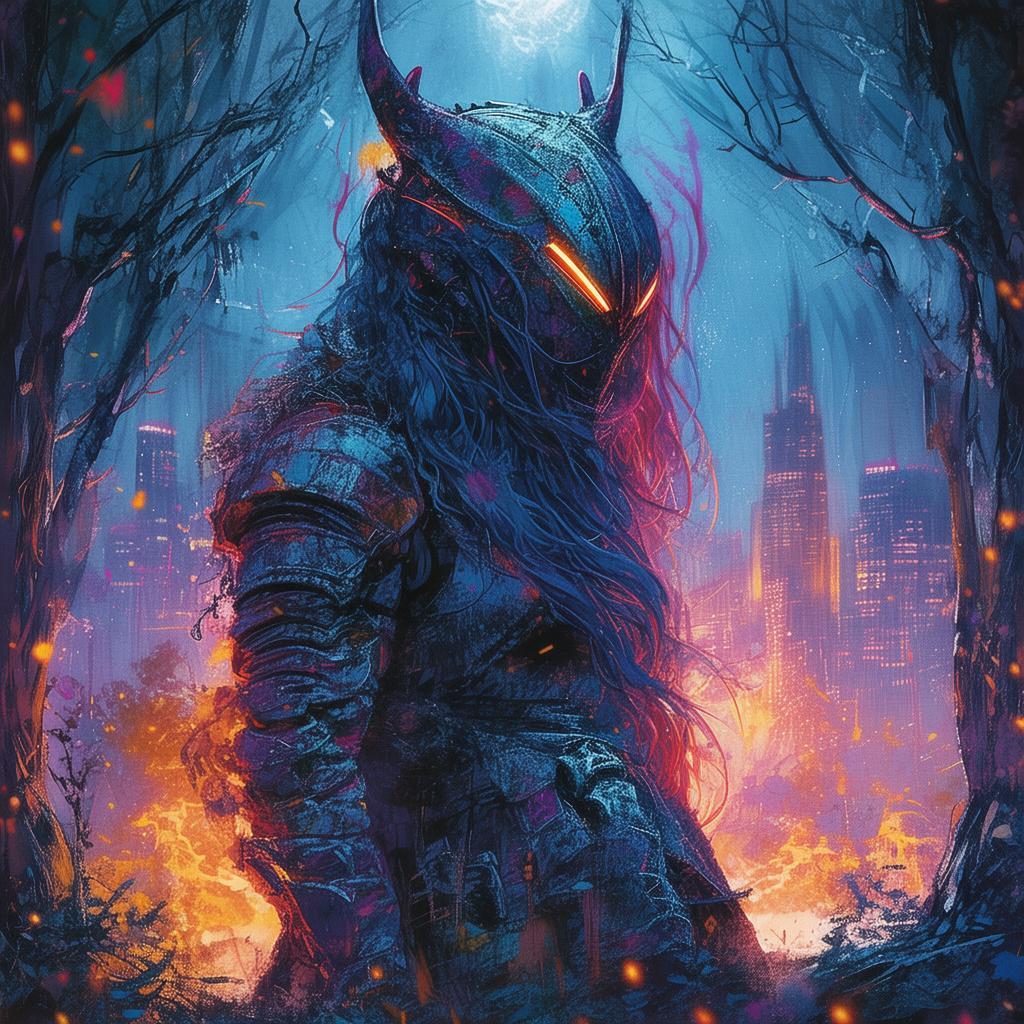
"Qu Yuan," a voice called from the doorway, "the king has summoned you. We must act quickly."
Qu Yuan rose, his heart heavy with the weight of his duties. He had been warned time and again that his loyalty to the king would be his undoing, but he could not turn his back on the people he had sworn to serve.
As he walked through the palace corridors, the air was thick with tension. The nobles whispered among themselves, their eyes gleaming with malice. Qu Yuan knew that this meeting would be his last.
The king sat on his throne, surrounded by his closest advisors. Their faces were masks of cunning and deceit. The king spoke, his voice cold and calculating.
"Qu Yuan, you have been a loyal servant to our kingdom. But your beliefs are a threat to our power. You must leave Chu, or face the consequences."
Qu Yuan's heart sank. He knew what this meant. He would be banished, his name a curse upon the lips of the people he loved.
"I will leave," he said, his voice steady despite the storm of emotions churning within him. "But I will not forget the suffering of my people."
As he walked out of the palace, the weight of the world seemed to press down upon him. He knew that his life would never be the same. He would be a wanderer, a man without a home, without a purpose.
In the years that followed, Qu Yuan wandered the land, his heart heavy with sorrow. He wrote poetry of love, of loss, of the beauty that surrounded him, yet was so often ignored. His bamboo sheets became his confidants, his only companions in a world that had turned its back on him.
One night, as he sat by the river, the moon casting a silvery glow upon the water, Qu Yuan took out his bamboo sheets. He wrote of his love for his kingdom, of his pain, and of his hope that one day, the people would rise up and cast off the chains of tyranny.
As he finished his last verse, he looked up at the moon, a silent witness to his pain. He rose, his heart heavy, and stepped into the river. The people watched in horror as the poet's body was consumed by the water, his spirit joining the river in its eternal flow.
But the bamboo sheets remained. They were found by a fisherman, who took them to the king. The king, moved by the poet's final act of love, ordered that the sheets be preserved. They were woven into a shawl, a symbol of the poet's enduring spirit.
And so, the legend of Qu Yuan was born. The story of the poet who gave his life for his people, whose bamboo sheets became a testament to his love and sacrifice. His poetry, his spirit, and his tragic end have become a part of the fabric of Chinese history, a reminder of the power of art and the courage of one man who stood up against the tide of tyranny.
The bamboo sheets of the vanishing poet remain a mystery, a puzzle that has never been fully solved. Some say they contain the secrets of Qu Yuan's life, while others believe they are simply a vessel for his spirit. Whatever the truth, they stand as a testament to the enduring power of love, sacrifice, and the human spirit.
✨ Original Statement ✨
All articles published on this website (including but not limited to text, images, videos, and other content) are original or authorized for reposting and are protected by relevant laws. Without the explicit written permission of this website, no individual or organization may copy, modify, repost, or use the content for commercial purposes.
If you need to quote or cooperate, please contact this site for authorization. We reserve the right to pursue legal responsibility for any unauthorized use.
Hereby declared.
